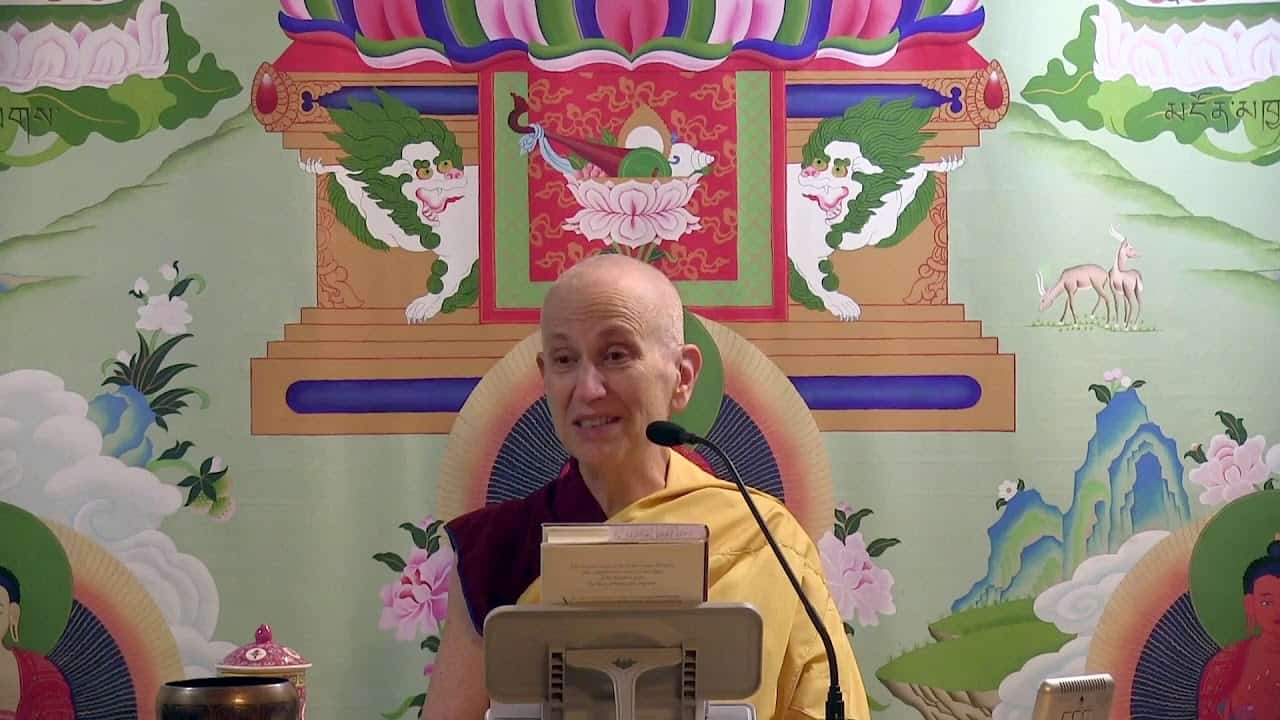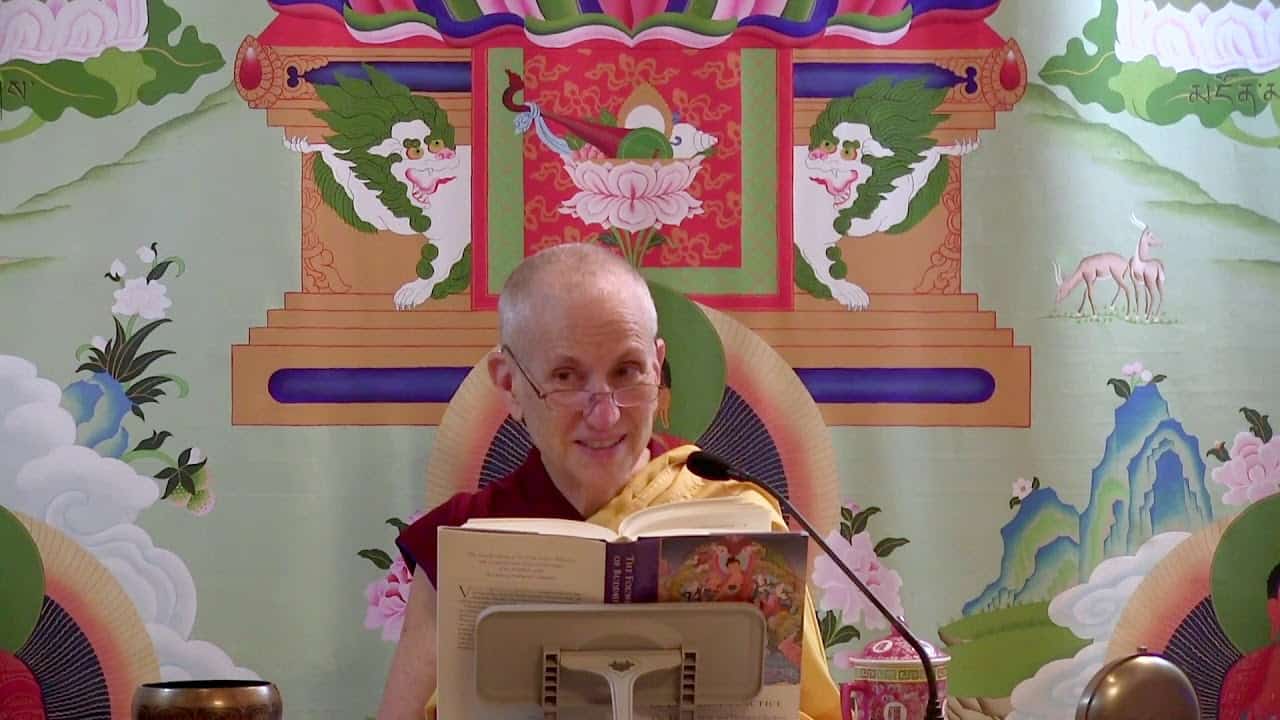The nature of mind
35 The Foundation of Buddhist Practice
Part of an ongoing series of teachings (retreat and Friday) based on the book The Foundation of Buddhist Practice, second volume in “The Library of Wisdom and Compassion” series by His Holiness the Dalai Lama and Venerable Thubten Chodron.
- Meditation on the continuity of consciousness
- How appearance of objects arise in the mind
- Our engagement with external objects obscures us from seeing the nature of the mind
- Observing the conventional nature of the mind and examples to describe that
- Each moment of mind arising, abiding, and ceasing at the same time
- Applying three principles of causality to investigate the continuity of the mind
- Is the physical matter the cause for the mind?
- Can multiple streams of consciousness produce a stream of consciousness?
The Foundation of Buddhist Practice 35: The Nature of Mind (download)
Contemplation points
- Following along with the meditation on the continuity of consciousness, does that loosen up the idea of who you think you are? Can you pinpoint a person on that continuity? How can the mind be different from one moment to the next and still feel like one person?
- Imagine what it might be like to cognize phenomena with a completely different type of consciousness. Does that change the way you see “external objects?” Thinking in this way, do objects really exist out there, completely separate from the mind perceiving them?
- Consider the mind as a still pool of water. Take some time to stop all conceptual thought and not be distracted by sounds or thoughts. Doing this over time, the clear nature of the mind will become more apparent. One you experience the gap between the mind and objects, try to remain in it. Get a feel for the mirror-like clarity of the mind.
- What are Asanga’s three principles of causality? What does each principle refute?
- What are the contradictions that arise if we posit consciousness arising from matter, our parents, or an external creator?
- Reflect: Everything that functions arises from a cause. Just as our body arose from a cause, so did our mind. Consider the three principles of causality. The only cause that could produce a moment of mind is a previous moment of mind. The mind that joined with the fertilized egg to create a living being must have been a mind from a living being who had lived before and had recently died.
Venerable Thubten Chodron
Venerable Chodron emphasizes the practical application of Buddha’s teachings in our daily lives and is especially skilled at explaining them in ways easily understood and practiced by Westerners. She is well known for her warm, humorous, and lucid teachings. She was ordained as a Buddhist nun in 1977 by Kyabje Ling Rinpoche in Dharamsala, India, and in 1986 she received bhikshuni (full) ordination in Taiwan. Read her full bio.


